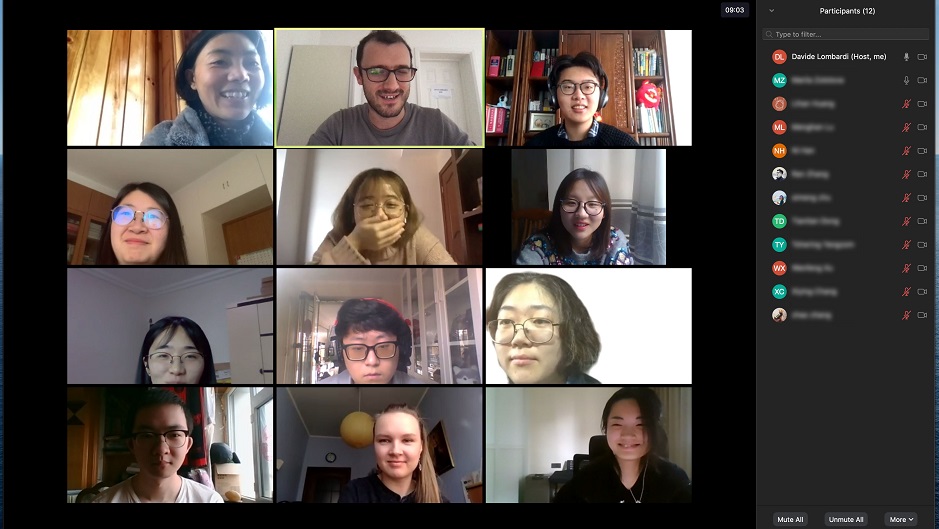08 Jun 2020
A scholar's own trilingual background was the inspiration for a master’s thesis on how Chinese students of Mongolian ethnicity feel about the ability to speak three languages: Putonghua (Mandarin), Mongolian and English.

He Jiang, who earned his masters degree in XJTLU’s Department of English, is from Inner Mongolia and co-authored a paper about Chinese minority university students’ attitudes towards trilingualism. The paper was published in the Journal of Multilingual and Multicultural Development, a Social Sciences Citation Index journal.
“Students of Mongolian ethnicity speak Mongolian at home, so Putonghua (Mandarin) is our second language. English, as the second language for most people in China, is actually our third language,” Jiang said.
“I have read a lot of papers and found that the studies in China focus a lot on bilingualism of Chinese and English. Trilingualism is relatively less studied. That’s why I want to do some research about it.”
The essay, titled ‘Attitudes toward trilingualism: a survey study of Chinese Mongolian university students,’ was authored by Dr Rining Wei from the Department of English along with Jiang and Mengxia Kong, both MA TESOL graduates.
The study was based on approximately 300 Chinese university students of Mongolian ethnicity who were asked about their attitudes toward Putonghua (Mandarin), Mongolian and English in terms of “beauty,” “endearment,” “usefulness,” and “social influences.”
The results indicated that the students’ attitudes towards the three languages are positive.
“Beauty and endearment are about the integrative values of languages, while usefulness and social influences are about the instrumental values,” Kong said.
The study indicated that students of Mongolian ethnicity have more affinity with Putonghua (Mandarin) and Mongolian, while Putonghua (Mandarin) and English are of greater utility.
“It also partly shows that while the targeted students recognise the practical utility of English, they maintain strong affection to Putonghua (Mandarin) and their ethnic language,” added Kong.
Dr Wei said he hoped to provide reference for language policy makers in China through the research, and also to assist international academic groups in learning more about policies related to minority ethnic languages and their development in China.
Bilingualism, multilingualism and language policy are Dr Wei’s main areas of study. He offered guidance and support to the students through the process of research, thesis writing and publication of the paper.
“Dr Wei guided us and answered our questions with great patience, whether in data analysis or wording for the thesis,” said Jiang.
“The journals he chose for us are highly relevant to our study, so our article was only modified twice before it was accepted.”

Pictured above from left to right: Mengxia Kong, Dr Rining Wei and He Jiang
Kong’s second article written under Dr Wei’s guidance, ‘EFL learners' attitudes towards English-medium instruction in China: The influence of sociobiographical variables,’ was published in Linguistics and Education.
According to Kong, academics have been more and more concerned about the EFL learners’ attitudes as English-medium instruction develops.
“Our research aims to explore Chinese university students' attitudes toward English as a medium of instruction as well as provide more reference for future English education, teaching methods and language-related policy-making,” Kong said.
The study found that although some students said that instruction in English may affect the understanding and absorption of professional and complex knowledge, Chinese university students generally hold a positive attitude towards teaching in English.
By Simin Yang, translated by Boqiang Xiao, edited by Guojuan Wang and Will Venn
08 Jun 2020
RELATED NEWS

Making emergency online classes work – we did it, you can too
First in a two-part series. Part two here. Moving to all-online instruction takes effort, but if our experience is an example, take heart, it will go just f...
Learn more








